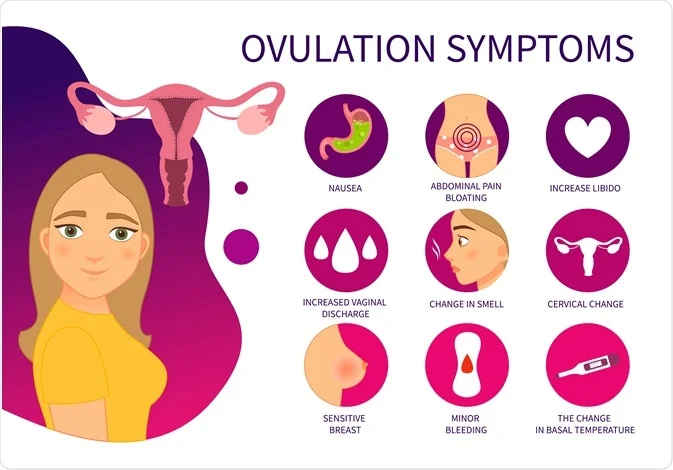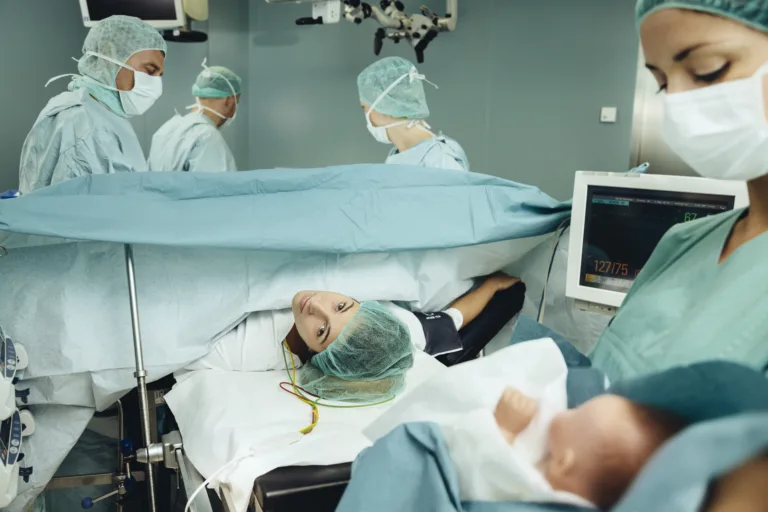6 Signs of Ovulation After Giving Birth: A Comprehensive Guide
Pregnancy is one of the most special and miraculous experiences in a woman’s body in which the ovaries remain resting. There is no ovulation activity and you’ll stop having your periods. However, soon after giving birth, a woman’s body will undergo several visible and invisible changes. One of these changes includes restoring the menstrual cycle and the return of ovulation.
So the questions will be, how soon your menstruation will come, and what are the possible signs of ovulation after giving birth?
While bringing new life into this world is the most fulfilling part of being a mother, navigating the after-birth and postpartum life is the most crucial. As a new mom, it is very important to be informed about how your body works, what will be your new menstrual cycle, fertility, and ovulation window.

In this article, we are going to give you an overview of your menstrual cycle, breastfeeding as a birth control, and predominantly discuss the notable signs of ovulation after giving birth. So, keep reading to learn more about this significant phase!
Understanding the Postpartum Ovulation Journey
Before we start about what is ovulation and what are the signs of ovulation after giving birth, we will first have a brief discussion about your menstruation after birth, and how breastfeeding affects your menstruation and ovulation.
There are differences among individual women and their hormone levels, so it’s difficult to say when a period will recommence after childbirth. Some women find their period returns the very next month after the birth and at the other end of the scale, some women don’t menstruate until well after twelve months.
When periods resume, it’s common for them to be heavier and/or more irregular than normal – often for months. Some women find that their first periods after baby are so heavy that they need to use both pads and tampons.
Of women who choose not to breastfeed, approximately 80% find their period has returned within 10 weeks.

Breastfeeding can delay menstruation and ovulation for 20 weeks or more, but it is not uncommon to find your period returning sooner, or much later than 20 weeks.
While unlikely, it is possible to get pregnant less than 6 weeks after having a baby. However, it is impossible until ovulation begins again.
Ovulation happens differently. Some women experience ovulation before their period so it is also possible for a woman to get pregnant before having the first postpartum period.
If you don’t want to get pregnant again so soon after giving birth, you better check the signs of ovulation after giving birth below and start using some other form of birth control. Of course, if you so desire, you could use this chance to start planning another pregnancy, but, as mentioned, that’s not the best health recommendation. Pregnancies in such short intervals do carry certain risks.
Signs of Ovulation After Giving Birth
Here are the 6 signs of ovulation after giving birth that you should look out for:
1. The Return of Your Period
One of the most evident signs of ovulation after giving birth is getting your period. It is a clear sign of returning fertility while breastfeeding. If the egg is released and you bleed, you can expect ovulation to follow as well. But not every menstruation will lead to ovulation, that isn’t always true for everyone. Anovulatory cycles can occur, so it’s important to know the other signs of ovulation after giving birth.
It’s important to note that the timing of the first postpartum period can vary among women. Some women get their period back within six weeks, while others don’t for several months.

2. Cervical Mucus Consistency
As you approach ovulation, your cervical mucus becomes more abundant, clearer, and stretchy, resembling raw egg whites. This change in mucus consistency helps facilitate sperm movement and enhances the chances of fertilization.
3. Discomfort in the lower abdomen
Another one of the signs of ovulation after giving birth is probably not the one you missed. Once you start feeling the cramps in your abdomen again, you’re probably resuming your menstrual cycle. Cramps stop when the egg gets released, which is when you’re at your most fertile phase of the cycle.

4. A Libido Boost
Some of the signs of returning fertility while breastfeeding will present themselves in the body’s desire to put that fertility to good use. With estrogen surging again, you will probably notice that your inclination for sexual intercourse is higher than before. And with a boost in estrogen and libido, also comes ovulation.
5. Breast Tenderness
Just like cramps, breast tenderness is part of the menstrual cycle that could also signal ovulation while breastfeeding. Of course, breasts will be tender because of breastfeeding too, which is why you should also pay attention to other signs of ovulation while breastfeeding. You should differentiate breast tenderness from actual breast pain; if you feel like something’s wrong and the pain doesn’t seem to subside, make sure to talk to your doctor.

6. Basal Body Temperature (BBT)
After ovulation, there is a slight rise in basal body temperature, typically ranging from 0.5 to 1 degree Fahrenheit. By monitoring your temperature each morning before getting out of bed, you can identify a pattern of temperature changes that indicates ovulation has occurred.
Navigating postpartum fertility by recognizing Signs of Ovulation After Giving Birth
Recognizing the different signs of ovulation after giving birth is very important for a new mother. Whether you aim to conceive again or want to understand your body’s rhythms better, paying attention to the key indicators we discussed today can help you accurately predict your fertile window.
Every woman’s body is unique, and postpartum ovulation patterns may vary. By being aware of your body’s physical and hormonal cues and seeking guidance from your healthcare provider, you can be knowledgeable about your postpartum fertility and have the power to make informed decisions regarding family planning.
Frequently Asked Questions
Can I Get Pregnant Immediately After Giving Birth?
Yes, it is possible. Ovulation can resume within weeks after childbirth, so practicing contraception is vital if you’re not ready for another pregnancy.
Is Breastfeeding a Reliable Form of Contraception?
While breastfeeding can have a suppressive effect on ovulation, it is not a foolproof method of contraception. The hormone prolactin, which is responsible for milk production, can delay the return of ovulation and menstruation. It is best to use other forms of contraception to avoid getting pregnant.
How Long Does It Take for Menstruation to Return?
The return of menstruation varies. Some women experience it within a few weeks, while others might take months.
Can Stress Affect Postpartum Ovulation?
Yes, stress can impact ovulation. Prioritize stress management techniques to promote a healthy postpartum journey.
When Should I Consult a Healthcare Provider?
If you have deeper concerns about postpartum ovulation, it’s advisable to consult a healthcare provider for personalized guidance and reassurance.
Conclusion
While pregnancy and giving a new life can give us the most fulfilling journey, it is not advisable to get pregnant months after giving birth. So, better look out for the signs of ovulation after giving birth. It may vary from person to person, but what is the most important is to recognize the uniqueness of each individual’s body. For those who are not breastfeeding, ovulation can typically occur within four to six weeks after childbirth as the body recovers and hormonal levels regulate. For those who are, ovulation resumes, on average, between three to six months after giving birth as breastfeeding patterns change.
Some common signs of ovulation after giving birth include changes in cervical mucus consistency, increased libido, mild pelvic pain or twinges, a slight increase in basal body temperature, and breast tenderness or sensitivity.
Remember, every person’s fertility journey is different, and it’s important to approach it with patience, understanding, and support. By being aware of your body, tracking the signs of ovulation after giving birth, hormone levels, and seeking appropriate medical advice when needed, you can take proactive steps toward optimizing your reproductive health.







